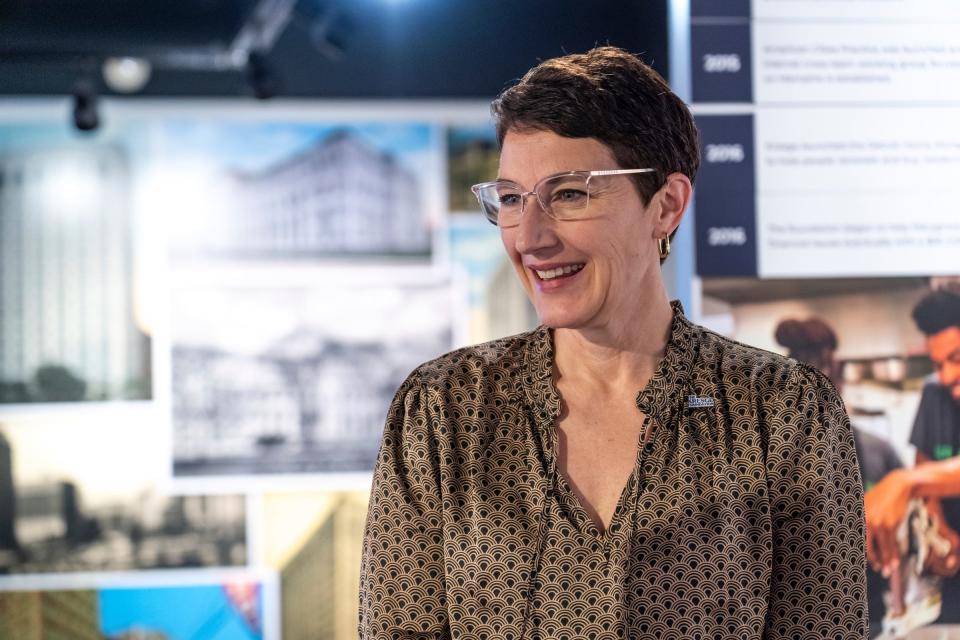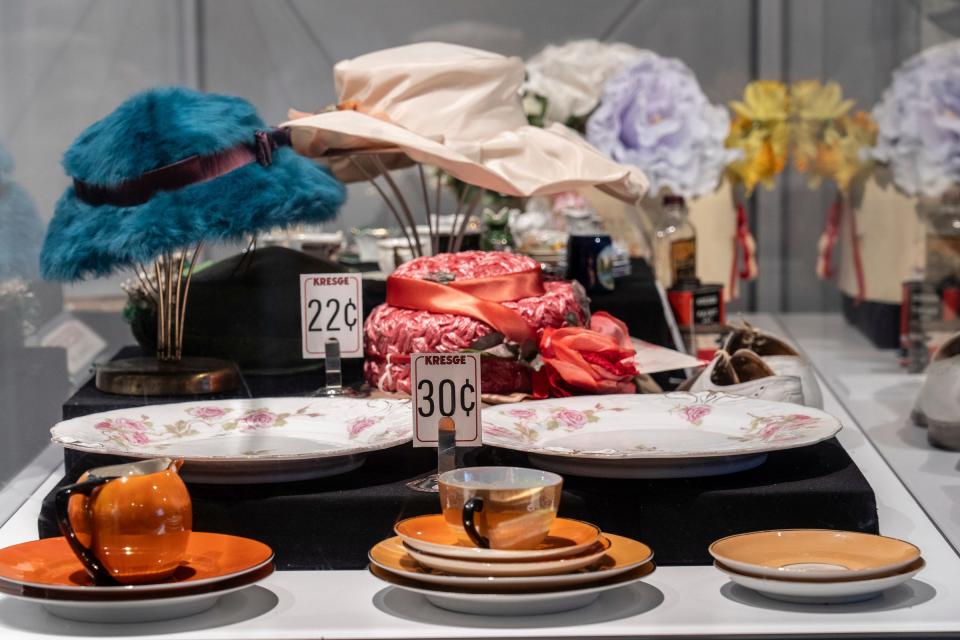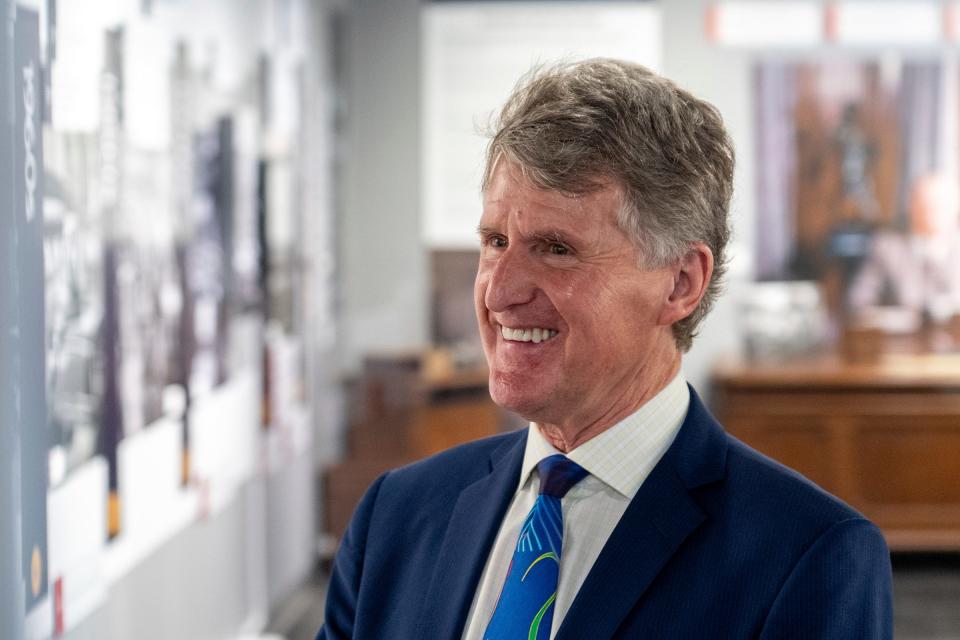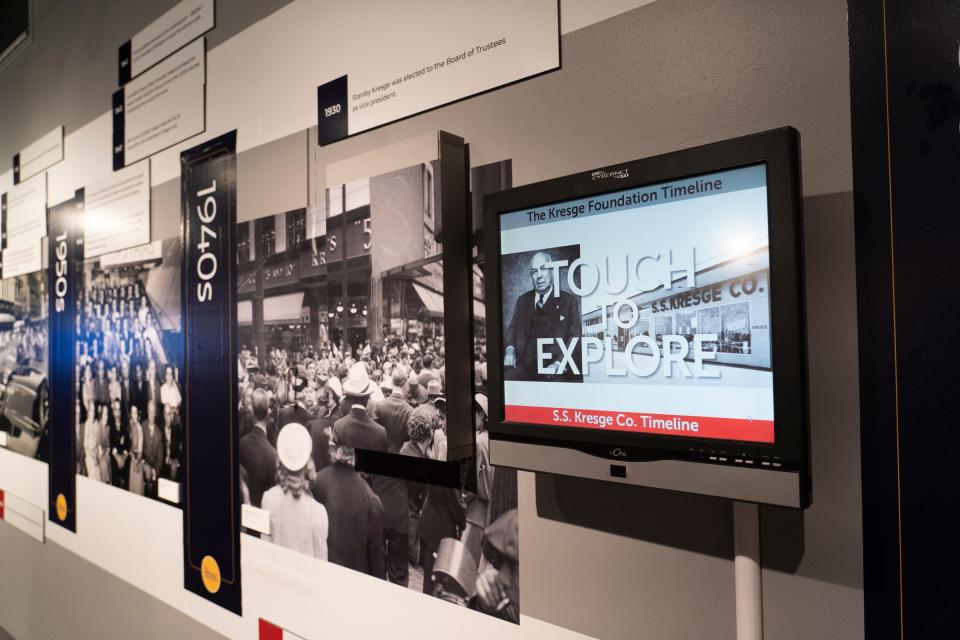Kresge's 100 years of influence celebrated in Detroit Historical Museum exhibit
The centennial of Michigan’s influential Kresge Foundation is celebrated in the Detroit Historical Museum’s newest exhibition, “Kresge at 100: A Century of Impact, a Future of Opportunity,” opening Saturday, May 4.
The exhibition is spread across two separate galleries of the museum’s lower level, including Wrigley Hall, a wing built in the 1960s with support from the Kresge Foundation. The main exhibit highlights two separate (yet intertwined) timelines: Kresge’s five-and-dime store and lunch counter, so successful that it eventually grew into retail behemoth K-Mart; and programs launched and supported by the Kresge Foundation, created from the retail company’s great financial success.
Though the foundation initially spread its attention and grant funding around the country, supporting a number of issues and causes, in the latter half of the 20th century, its focus began tightening more and more around the city of Detroit.

“In 1990, Ze’ev Chafets wrote this book called ‘Devil’s Night: And Other True Tales of Detroit,'” said Kresge Foundation spokesperson Jennifer Kulczycki. “He wrote this book, and had an excerpt in the New York Times Magazine, and it painted a grim picture of the city. It’s a difficult read. But it painted this dire image — like, no hope. You hear these apocalypse narratives … it really was that. It was devastating. And one of our board members came into a board meeting and said, ‘This is happening right under our noses — we have to do something about it.’ And so the foundation, throughout the ‘90s, began to really focus on Detroit."
The foundation called its new focus on local investment "The Detroit Initiative."
“That’s how Campus Martius, the riverfront, Eastern Market, lots and lots of what we now know as jewels of the city — they were in various states of city ownership or disrepair or at the risk of being torn down — started getting investments from Kresge and other partners in the community," Kulczycki said. "That book really lit a fire.”
In 2006, current foundation President and CEO Rip Rapson came to Detroit to take the reins and transition the organization into the modern era.

“We’d been doing things kind of the same way for 80 years,” Kulczycki said. “The board chair said it was ‘time to take $4 billion out for a ride. Let’s do something new.’ So, with full respect for the past, they let Rip lead lots and lots of years of work to really try to focus on moving from capital challenge grants into something more specific. And that’s when a lot of things started to happen. It’s the late 2000s, post-Super Bowl, and people are starting to say, ‘Maybe there is something here in Detroit.’”
Rapson said the Kresge Foundation’s reputation for identifying worthwhile sources and causes in the philanthropy field had grown to the point where other philanthropic organizations began turning to them for guidance.
“I got a call very early on from the Gates Foundation, saying, ‘Well, we’re interested in investing in a medical center,’” Rapson told the Free Press. “I said, ‘That’s interesting. Would you like to see our due diligence? Or, what would you like?’ They said, ‘No, we just want to know whether you approve.’ Pardon me — a $40 billion foundation wants to figure out whether we ‘approve?’ They said, ‘Yeah, I mean, you have this reputation.’”
Still, Rapson felt the urge to move the organization away from capital work and into more deeply community-driving initiatives.
“How do you position cities for the future? It’s a really complicated proposition,” he said. “The ambition was to create a philanthropic organization that was able to both cite what many cities have in common — issues of poverty, opportunity, basic building blocks of health and vitality — and yet continually adapt to what we know will be the sort of cascades of struggle and complexity. COVID, bankruptcies, racial reconciliation … all of these things, you don’t put into a strategic plan.

“So, in many ways, I think the objective was to try to help create this kind of machinery that could be both constant in its focus on cities, but also adaptable in terms of the kinds of changes that cities are always facing.”
Asked about the foundation’s greatest accomplishments, Rapson’s answer was quick:
“Our help,” he said, “in getting Detroit back on its feet, and on a trajectory of health and vitality over the long term. And not just in the bankruptcy, but before the bankruptcy, when we were helping the community to develop a land use plan, a future city plan, a more vibrant arts ecology, when we were creating a light rail project, when we were moving to revitalize the corridor. The role we played in the Grand Bargain, and then after the bankruptcy, helping Mayor Duggan sort of put Detroit back on a pathway to health, collect its assets and move forward in a positive way.
“And I think we’ve played a significant role in that, from the riverfront to Campus Martius to our neighborhood policies, everything in between.”
Rapson’s personal proudest accomplishment, however, is somewhat different.
“I think, in many ways, the proudest accomplishment is to create an institution of enduring value, and of enduring purpose, focused on how we can help both cities and people of marginalized opportunity move into a better place to become more healthy, help open the gateways of opportunity to low-income and low-wealth people. For me, the creation of an organization that can continually adapt, continually turn around and pivot toward the most important and difficult issues a city faces is really, in my mind, the proudest thing that we have achieved over the last 20 years.

“We’re very proud of our roots in Detroit; we take enormous pride in having helped get the city back into positive territory. But we also know that’s not the end of the story. Not only will Detroit see new challenges in the future where we hope we can be of service, but so will other cities across the country. That’s a really complicated proposition, and that’s why I think having a centennial moment is such an important waystation — for us to think really hard about that. Are we building the kind of responsiveness and adaptivity that we need in order to be effective in the future?”
“Kresge at 100: A Century of Impact, a Future of Opportunity” opens to the public with free admission to the Detroit Historical Museum on Saturday, May 4. The exhibit will be open until Jan. 31, 2025. The Kresge Foundation is also sponsoring free admission on the second Sunday of every month during the run of the exhibition, beginning June 9 and running through Jan. 12, 2025.
Contact Free Press arts and culture reporter Duante Beddingfield at dbeddingfield@freepress.com.
This article originally appeared on Detroit Free Press: 100 years of Kresge explored in Detroit Historical Museum exhibit

